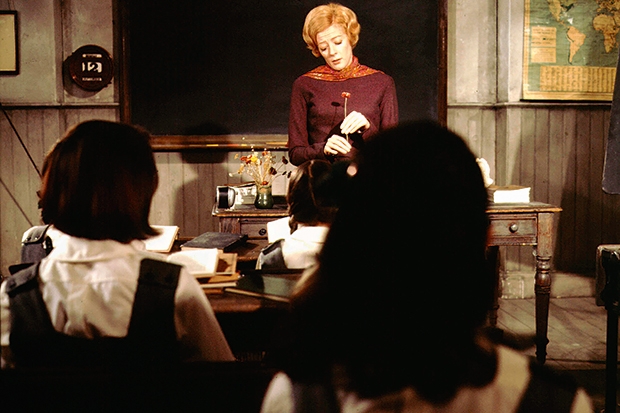In 1919 the literary critic G. Gregory Smith coined the term ‘Caledonian antisyzygy’, by which he meant the ‘zigzag of contradictions’ that so dominated the national literature that it might be reckoned a useful summation of the Scottish character itself. ‘Oxymoron,’ Smith observed, ‘was ever the bravest figure, and we must not forget that disorderly order is order after all.’
Perhaps so. Certainly, the Scottish public schools endure an often ambivalent, even awkward, relationship with their native land. The most prestigious are outposts of England in Scotland, custodians of an idea of Britishness that’s increasingly out of favour north of the border. Schools such as Fettes, Loretto, Glenalmond and Merchiston generally follow the English curriculum, entering their pupils for GCSEs and A-levels. Their students learn more about Tudor England than Stewart Scotland. They play rugby and cricket in a land much more obsessed with football. Above all — and most perniciously — they are unashamedly ‘elitist’.
No wonder they are easy targets for politicians with an axe to grind (a category of politician of which Scotland has no shortage). Their status as educational charities — and the consequent tax advantages conferred by that status — has been a matter of some controversy. Radicals at Holyrood would, if only they could, rather like to go further than stripping the public schools of their charitable status.
The great boarding schools in particular are perceived to be in Scotland but scarcely of Scotland. Real Scots, you see, don’t swank around in tweed jackets and red trousers. Paradoxically, the products of the public schools lie firmly outside the Scottish mainstream even as their alumni also dominate large swathes of Scottish society, most notably the law.
But for many left-wingers, the handful of Scottish boarding schools are bastions of privilege and evidence of what the wilder kind of radical deems a form of ‘internal colonisation’ in which the native elite is taught that Scottishness is unavoidably inferior to Britishness. An unfair accusation — these days, anyway — but one with just enough historical accuracy to wound. Once, they groomed pupils for the task of imperial administration and even today the Scottish public schools are fertile territory for army recruitment.

Only in Edinburgh, and to a lesser extent Glasgow, is a private education considered ‘normal’. One in four children in the Scottish capital attend the city’s great private schools: George Watson’s, Stewart’s Melville, Mary Erskine, George Heriot’s and the Edinburgh Academy. The oldest of these, Heriot’s, was established in 1628 by the eponymous royal goldsmith and philanthropist, whose bequest established a hospital for the education of the city’s orphaned children. (To this day the children of any Edinburgh-resident widow or widower qualify for scholarships to attend Heriot’s.)
Overall, however, a private education is rarer in Scotland than in England. Fewer than one in 20 Scottish pupils attend fee-paying schools. The Westminster political establishment may be dominated by public schoolboys but its Scottish counterpart is overwhelmingly comprehensive-educated. None of the leaders of the Scottish political parties were educated privately. SNP politicians, in particular, are vastly more likely to come from small-town, provincial Scotland than the large cities in which private education is more normal — that is, less unusual.
These days, like their counterparts south of the border, the Scottish boarding schools sell the idea of a classical British education to the international market. Gordonstoun led the way but Fettes has for a long time excelled in attracting Asian students, while Glenalmond’s location on the border of highland Perthshire has proved appealing to German parents attracted by a traditional British education in a glorious Scottish setting. Without foreign students some schools might find themselves in financial difficulty, since rampant fee inflation has made it harder for farmers, GPs and other members of the affluent middle-classes to afford a private education. In real terms, boarding schools are £10,000 a year more expensive than they were 20 years ago.
In such circumstances it is hardly surprising that the public schools are the stoutest strongholds of an increasingly unfashionable brand of unionism. Strathallan, in Perthshire, hosted a BBC Scotland debate during the campaign; 197 pupils voted to maintain the Union and just three favoured independence. No comprehensive school produced any such lopsided result. In this instance, the rich really are different.
In general, however, Scotland’s ‘timid posh folk’, as Hugo Rifkind (George Watson’s and Loretto) memorably described them in this magazine, generally preferred to keep a low profile during that rumbustious campaign. The landed and New Town classes had the most to lose from independence but were painfully conscious that protesting too much must damage the unionist cause more than it might help it. If it is modestly simplistic to say the Murrayfield crowd voted ‘no’ last September while the Hampden crowd voted ‘yes’, there is some truth in the observation.
Again, it would be foolish to insist too strongly that the products of the Scottish private schools are foreigners in their own land. Nevertheless, they are a clan — an easily identified one at that — whose members stick, and club, together. A surprising, even disconcerting, proportion of them have relatively few friends who were not schooled at Watson’s or the Glasgow Academy or wherever. If, as has become fashionable to observe, there are many Scotlands, the alumni of the great private schools are a tribe apart. Secure in their advantages, certainly, but also aware of their vulnerability and the extent to which they are unusual. Scotsmen — and now women — with an English education, the better to serve and promulgate an idea of Britishness that many of their compatriots now suspect has long since outlived its usefulness.







Comments